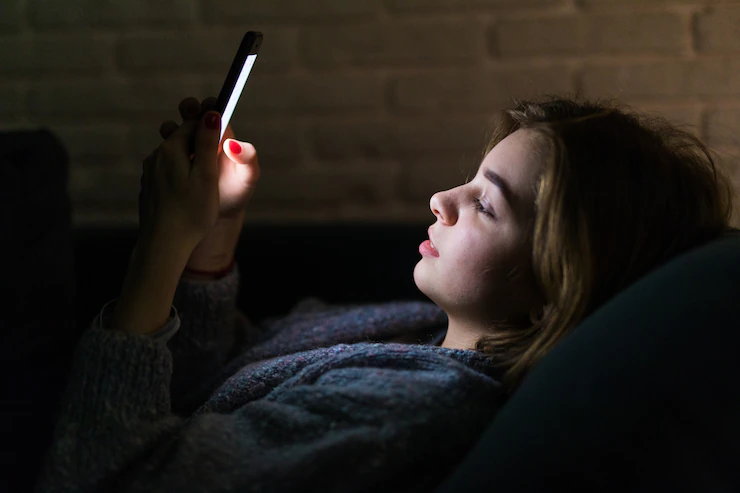The Impact And Evolution Of SEO Companies In The Digital Era
Subhasree Nag, 15 mins ago


Three billion people worldwide, or about 40% of the population, use social networks on the Internet. We spend an average of two hours a day on them: posting posts, sharing photos, and responding to friends’ posts. Every minute, social media users send almost half a million tweets and photos to Snapchat.
If social media plays such a big role, it is very important to understand how they affect us. From finding the best cocaine treatment around us to looking for cooking tutorials, social media has truly started to rule our lives. Nowadays, a lot of people assume that social media has only the worst consequences: like depression and apathy and ending with addictions.
Aren’t we sacrificing our mental health and well-being for online communication, and aren’t we wasting our precious time? What do scientific studies say about this?
In this article, we won’t tell you won’t give you an answer on how to beat alcoholism — you should look for this kind of information on the trusted sites of alcohol clinics.
However, we’ll try to clarify if social media can really lead to alcoholism or any other kind of serious mental condition.

The Oxford Internet Institute conducted a large-scale study. which was attended by 430 thousand children aged 10 to 15 years.
As a result, scientists have not found that the use of mobile devices, the Internet, or social networks in any way affects the occurrence or increase of depression, the manifestation of suicidal thoughts and tendencies, and behavior change.
The results were published in the journal journals.sagepub.com.
The study was conducted for many years, which led to the finding that watching TV and communicating on social networks, on the contrary, help to overcome depression. This positive picture was formed after scientists observed children in the period from 1991 to 2019.
Researchers have seen a small increase in emotional problems in sensitive children who actively and regularly use social networks. They believe that by communicating online, such children become even more immersed in the virtual world, losing their communication skills in the real world.
In search of friends who can provide support, such children spend more and more time with gadgets in hand, because they see no other way and opportunities for self-realization and networking with peers.
Researchers from the University of Lancaster (UK) and the University of Bamberg (Germany) conducted similar tests and also found a link between increased stress and the use of social networks.
Additionally, on social media, it is easier to identify if you have problems with alcohol and look for the best way to stop drinking or quitting alcohol without aa.
And the relationship and its growth between suicidal ideation/behavior and social media or television have not been identified.
According to Professor Andrew Przybylski, one of the co-authors of the study, it was not possible to determine the difference between the impact of social networks on mental health from 2010-to 2019.
Participants in the experiment, who were teenagers from the United States and the United Kingdom, assessed their feelings and reported on the length of time spent on social media or the time spent using gadgets.
In general, the answers to the questions did not show an inextricable link between the use of technology and mental health problems, and that technology has become more harmful over time.
Scientists have concluded that technology has less effect on the psyche than before and that it should not be associated with depression.
But at the same time, there is an Internet addiction, which should not be forgotten. Doctors offer to regularly conduct digital detox and attend special courses of group therapy.

Many people suffer from dependence on social networks, which does not allow them to live a full life, or even sleep the required amount of time.
Vice interviewed experts on how to cure such addiction and learned that the United States is actively developing rehabilitation centers to help combat addictions: gambling, technology, and social networks.
80% of users check their phones within the first 15 minutes after waking up. The average user checks their phone every 6 minutes during the day. These statistics are not considered supernatural. But still, there are people for whom the phone becomes a real addiction.
For such, Dr. Hillary Cash has opened a rehabilitation center for gambling and Internet addiction.
To understand whether your passion for the phone and social networks has become addictive, answer two simple questions: Does your addiction cause problems in life?
If so, do you continue to use the Internet and social networks just as often? If you answered “yes” to both questions, you should start to worry. In the last few years, psychologists have been debating how to classify this disorder and whether it can be called an addiction.
Dr. Cash believes that addiction to technology and the Internet should be included in the official list of addictions – as mental disorders.
She points out that such a deviation can affect the social and physical development of a person who is not interested in communicating with peers or any other activities not related to the Internet.
Read Also:

Arnab Das is a passionate blogger who loves to write on different niches like technologies, dating, finance, fashion, travel, and much more.